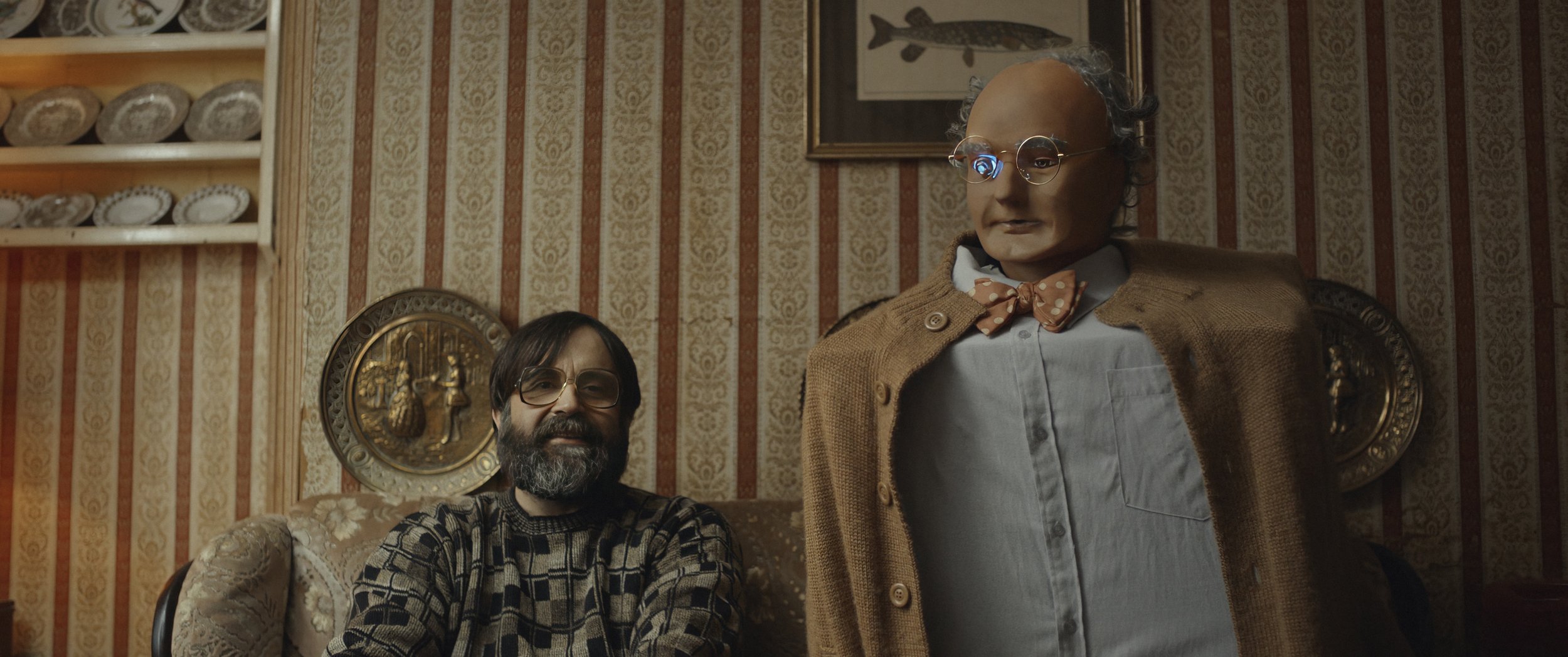Review: 'Official Competition' savagely skewers moviemaking pretensions, with Penélope Cruz and Antonio Banderas at their unhinged best
Mocking the act of making movies is a universal language, one that Argentine directors Mariano Cohn and Gastón Duprat speak hilariously in the made-in-Spain comedy “Official Competition.”
Pharmaceutical tycoon Humberto Suárez (José Luis Gómez) turns 80, and he wonders what his legacy will be other than a pile of money he will have to bequeath to his heirs, sooner rather than later. Maybe he can bankroll a new bridge, he tells his assistant — or, better yet, he’ll bankroll a movie. (Yes, Mr. Burns did this in “The Simpsons” ages ago, but it’s still a funny idea.)
Suárez buys the film rights to an impressive novel — one he hasn’t read — about two brothers: One who drives drunk and causes a crash that kills their parents, the other the cop who arrests him. Suárez then hires the most prestigious director he can find, the experimental filmmaker Lola Cuevas (Penélope Cruz), who plans to hire the best actors for the job.
Those actors are Ivan Torres (Argentine actor Oscar Martinez), a critically acclaimed thespian, and Hollywood star Felix Romero (played by Hollywood star Antonio Banderas). The two are as different as can be, the controlled stage actor who internalizes his performance vs. the status-obsessed movie star who keeps his acting all at the surface.
In Suárez’s cavernous ultra-modern mansion, Lola runs Ivan and Félix through a series of exercises that are meant to break down their performing styles but have the added effect of stressing the two actors to the breaking point. In one scene, Lola has a crane suspend a five-ton boulder over a bench, which she makes the actors sit on while rehearsing. (The payoff to this scene had me laughing a ridiculously long time.)
Cohn and Duprat, along with co-writer Andrés Duprat (Gastón’s brother), capture the pretentious atmosphere surrounding many artistic endeavors, and the wild storms that develop when titanic egos clash. Banderas is sharp as the shallow lothario, while Martinez matches with a contrasting character, the pretentious theater snob. Cruz is the woman in the middle, and with her eccentric directing and flaming red hair, she neatly skewers the mindset of director-as-god.
“Official Competition” becomes, in its twisty plotting and the three-way dynamic of its stars, a lacerating — yet, oddly, still loving — satire of how movies are made. Still, I’d be curious to see the movie Lola had in her mind’s eye as she made the movie-within-a-movie here.
——
’Official Competition’
★★★1/2
Opens Friday, July 1, at the Broadway Centre Cinemas (Salt Lake City). Rated R for language and some nudity. Running time: 114 minutes; in Spanish, with subtitles.







